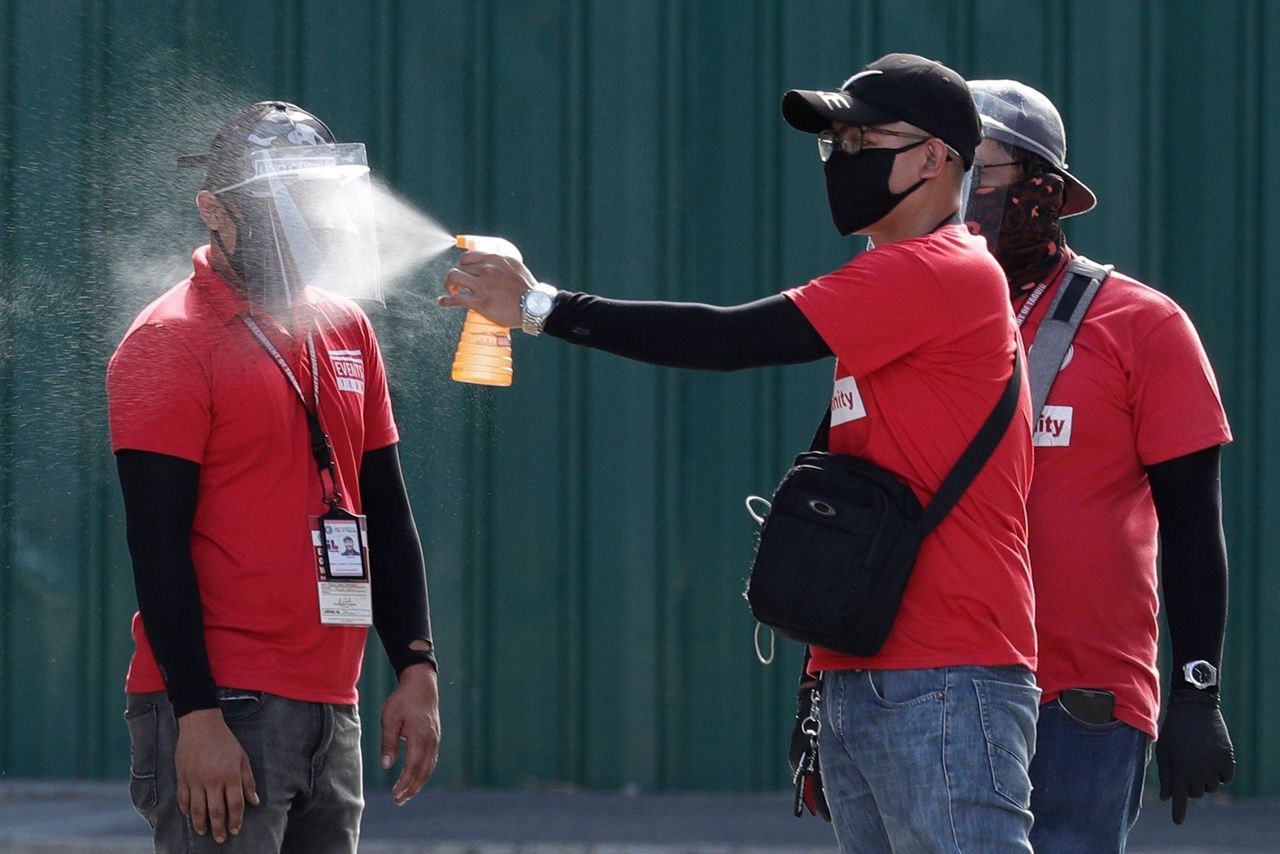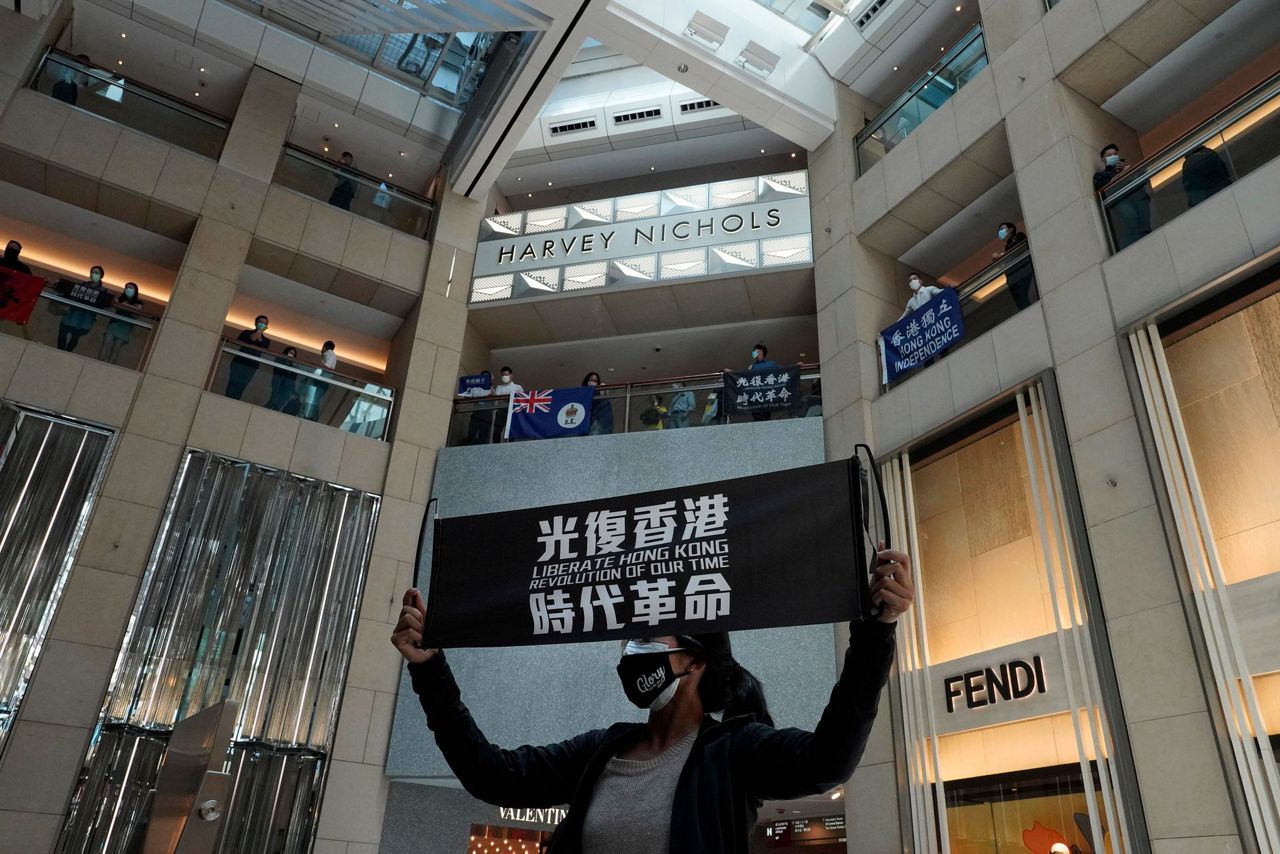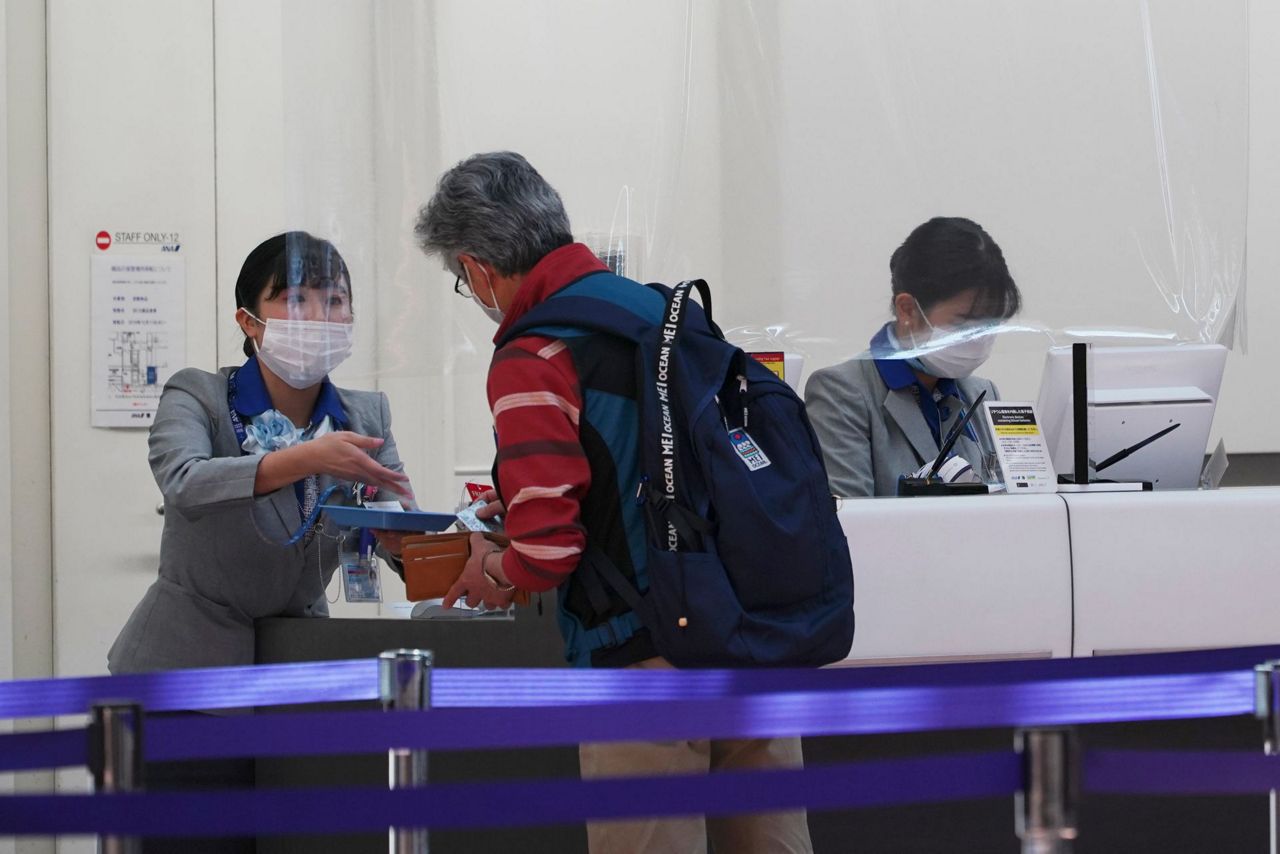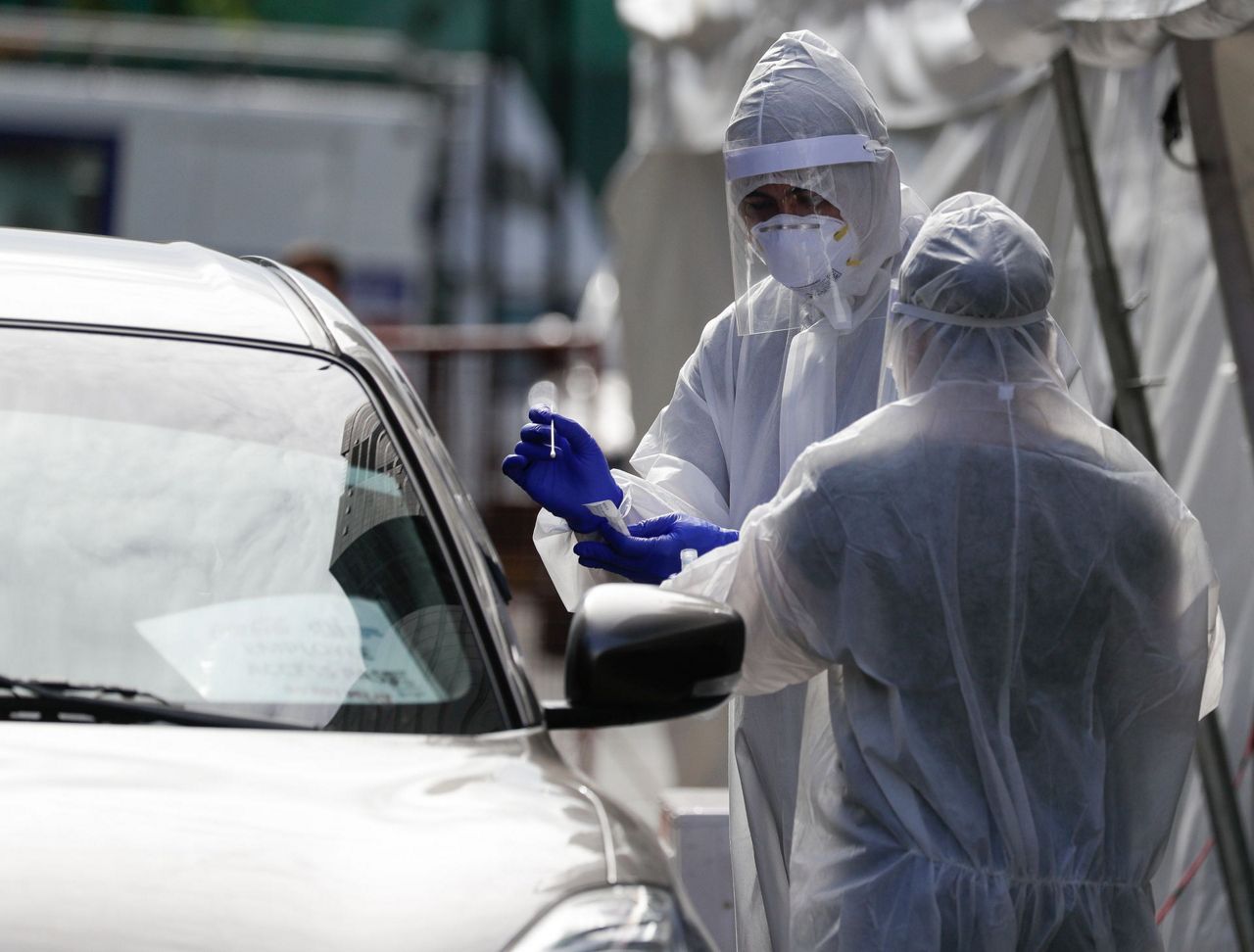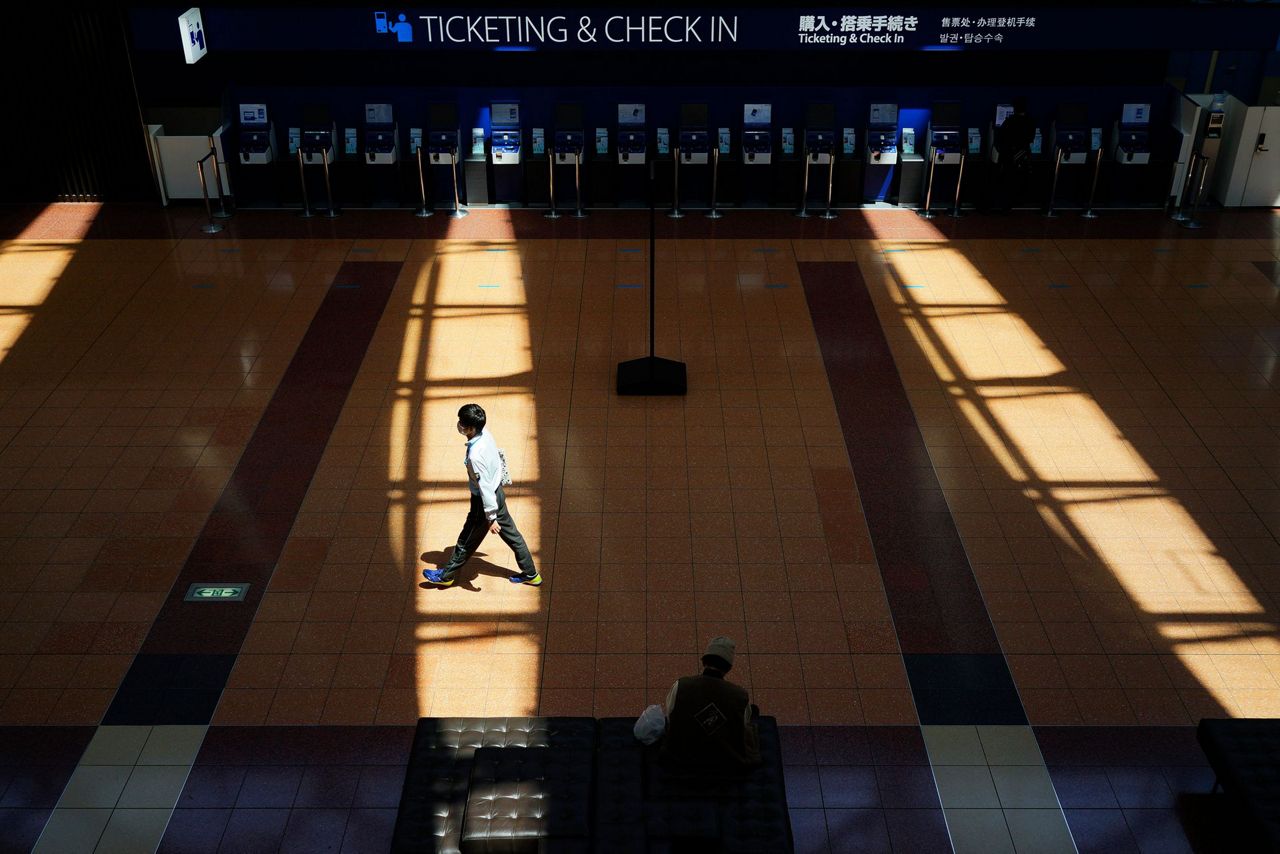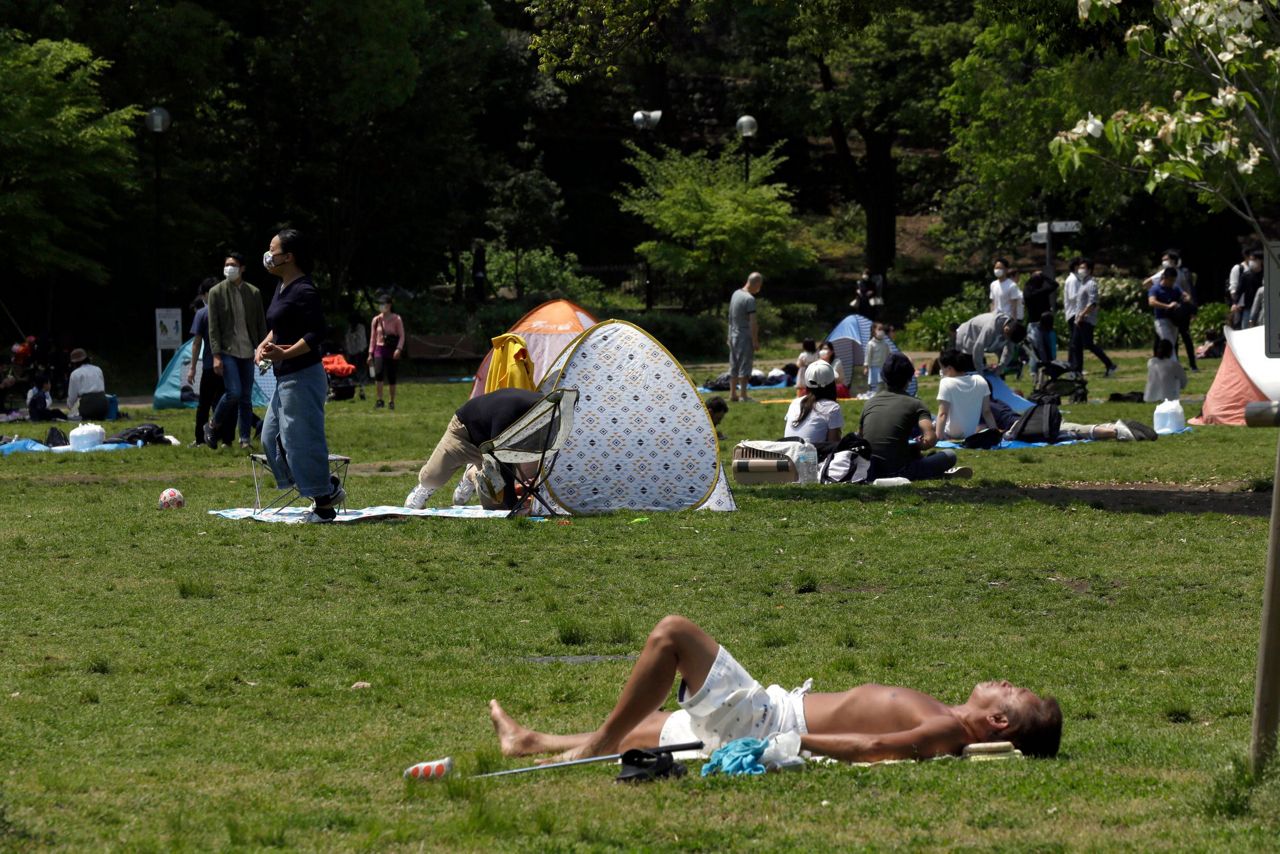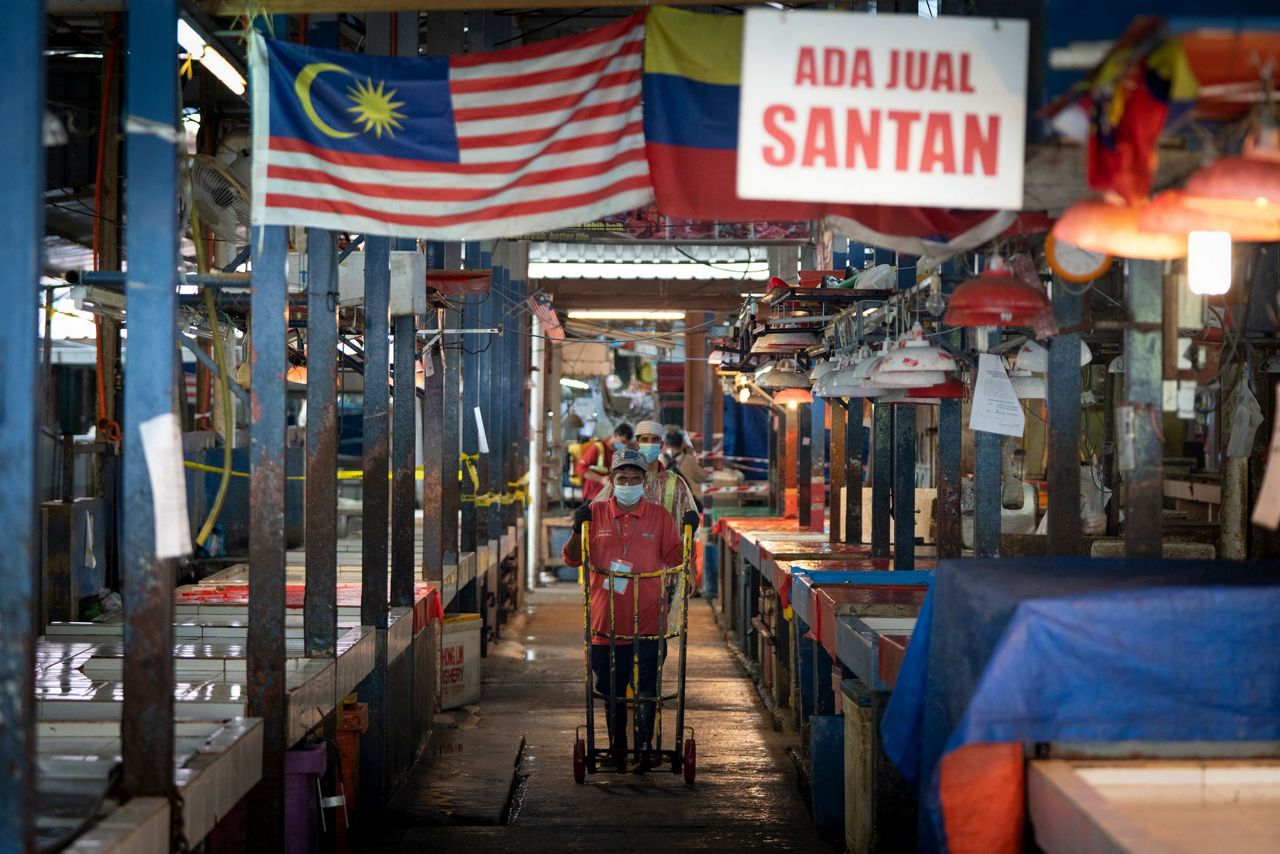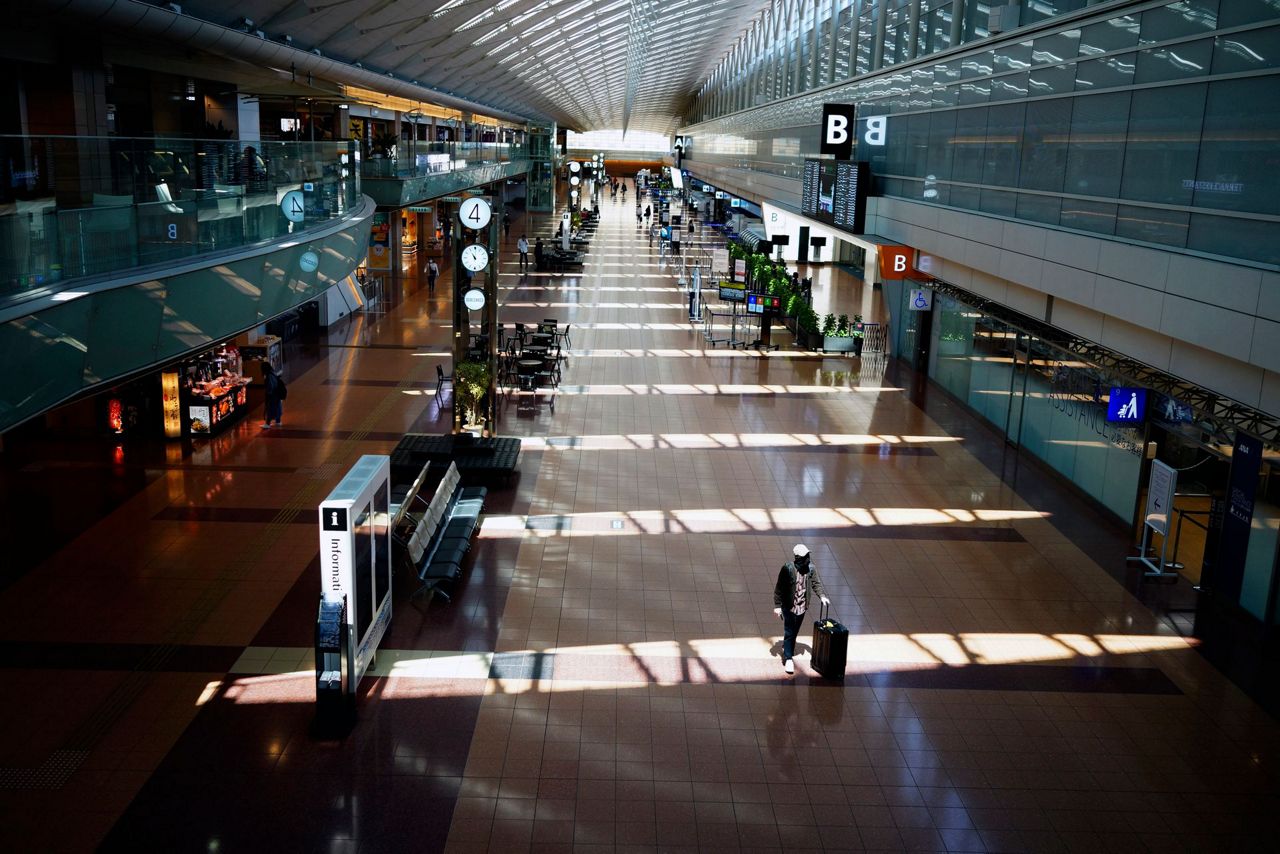NEW DELHI (AP) — With Chinese industries ramping up production, competing Indian businesses are urging Prime Minister Narendra Modi’s government to loosen India's 5-week-old coronavirus lockdown when it comes up for review on Sunday.
Gurcharan Das, former head of Procter & Gamble in India, said Wednesday that key industries such as pharmaceuticals, information technology and automobiles, which employ millions of people, can resume manufacturing at half or even one-third of their capacities in areas unaffected by the coronavirus. He said manufacturers should ensure that safeguards are in place for their workers, including safe distancing and the wearing of masks.
If India is unable to bring its economy back on the track, it could lose 30 million to 40 million jobs by the end of this year, leading to a devastating economic crisis, said Kiran Mazumdar Shaw, executive chairwoman of Biocon, a biopharmaceutical company.
India has confirmed more than 30,000 cases and 1,007 deaths.
Modi imposed a three-week lockdown on March 25 and later extended it until May 3, when he is scheduled to address the nation on its future. The government loosened it on Wednesday to allow hundreds of thousands of stranded people to return to their home villages.
In other developments in the Asia-Pacific region:
— INDIA SHELVES HYDROXYCHLOROQUINE PLANS: Public health officials in India have shelved plans to administer the untested anti-malarial drug hydroxychloroquine, or HCQ, to thousands in Mumbai’s crowded slums as a way of preventing infections in healthy people. Health officials in Mumbai said the plan to conduct tests was still in the cards but had not yet been approved by the government. For now, they will follow federal guidelines that say the drug can only be used for high-risk groups including health care workers taking care of COVID-19 patients, contacts of confirmed patients and those in quarantine centers. Experts say there is little evidence to show that HCQ can help treat COVID-19 infections. The drug had been widely touted by President Donald Trump.
— BANGKOK SET TO EASE RESTRICTIONS: Officials in Thailand’s capital say they're preparing to ease restrictions imposed to fight the coronavirus. The Bangkok Metropolitan Administration said Wednesday that plans call for the reopening of restaurants, markets, exercise venues, parks, hairdressers and barbers, clinics and nursing homes, animal hospitals and pet salons, and golf courses and driving ranges. Restaurants will have to keep their seats at least 1.5 meters (5 feet) apart and practice a wide range of sanitary measures. Thailand has confirmed 2,947 cases, including 54 deaths.
— CONCERNS OVER MALAYSIA LOCKDOWN PENALTIES: Malaysian lawyers and an international rights group have voiced concern over what they say is excessive sentencing of violators of the country’s coronavirus lockdown. Malaysia, which has confirmed 5,851 cases and 100 deaths, has arrested more than 21,000 people since a partial lockdown began March 8. Violators face a fine or a jail term of up to six months. The Bar Council, which represents some 15,000 lawyers, urged courts to temper justice with compassion because the offenses don't involve violent crime. Human Rights Watch said Malaysia should stop jailing violators because it's counterproductive to reducing the virus spread.
— HOLIDAY WORRIES IN SOUTH KOREA: South Korean officials have issued public pleas for vigilance to maintain hard-won gains against the coronavirus as the nation enters its longest holiday since infections surged in February. Vice Health Minister Kim Gang-lip said Wednesday that 180,000 people are expected to visit the resort island of Jeju during a six-day break from Thursday to Tuesday, despite the island government pleading travelers not to come. Kim urged travelers to wear masks, not to share food and stay at home if they have fever or respiratory symptoms. South Korea’ has confirmed 10,761 cases, including 246 deaths.
— TOKYO SITUATION STILL SERIOUS: Tokyo Gov. Yuriko Koike on Wednesday called for an extension of Japan’s nationwide “state of emergency,” which requests people to stay home and social distance. She noted that reported daily cases of COVID-19 in Tokyo have topped 100 recently. The state of emergency lasts through May 6, the end of the Golden Week holidays that began this week. The government has asked people not to travel during the holidays. There is no lockdown in Japan, and some businesses and restaurants remain open.
— CHINA CONGRESS SET: China has decided to hold the annual meeting of its ceremonial parliament late next month after postponing it because of the coronavirus outbreak. The official Xinhua News Agency said Wednesday that the National People’s Congress will open on May 22, according to a decision made by its standing committee, which handles most legislative affairs outside the annual two-week session of the full body. The convening of the full session, which would encompass about 3,000 members, indicates China’s growing confidence that it has largely overcome the pandemic that was first detected in the country late last year.
— MINING MAGNATE URGES INQUIRY DELAY: An Australian mining magnate and partner in the government’s pandemic response says a global inquiry into the coronavirus should be delayed until after the U.S. presidential election. Andrew Forrest, who became a billionaire exporting iron ore to China as founder of Fortescue Metals Group, said such an inquiry made “common sense” but should be held after the November election so “there’s not going to be a political dog in this fight.” Australia's calls for an independent inquiry are damaging its relations with China.
— BANGLADESH CASES RISE AS FACTORIES REOPEN: Bangladesh reported its most virus infections in a single day on Wednesday as the government allows hundreds of garment factories to reopen. Public health experts say Bangladesh could face a big challenge in the coming weeks because community transmission is taking place and the country has only 25 testing facilities for its 160 million people. The government reported 641 new infections, raising the total to 7,103. The Bangladesh Garment Manufacturers and Exporters Association said factories are operating with fewer workers and following safety guidelines set by the International Labor Organization and World Health Organization.
Copyright 2020 The Associated Press. All rights reserved. This material may not be published, broadcast, rewritten or redistributed without permission.



